Legacy Knowledge Erased: A Cautionary Tale of IT Oversight and Operational Collapse
In a striking example of corporate misjudgment, a company dismantled its Legacy Knowledge department—responsible for maintaining the foundational aspects of its in-house software system—under the assumption that a new system would soon replace it. This decision led to the destruction of critical documentation and the departure of key personnel. When a subsequent system failure occurred, the company found itself unable to perform essential operations like stock management and invoicing, forcing a regression to manual processes and incurring significant overtime costs. Efforts to re-engage the former Legacy team proved futile, as the necessary knowledge and documentation had been irrevocably lost.
Some parts of any company only run because a select handful of people know how things work
So one man described the aftermath of management getting rid of the folks in charge of legacy software


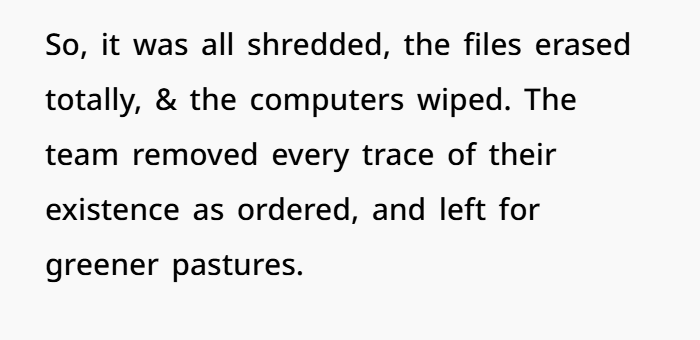
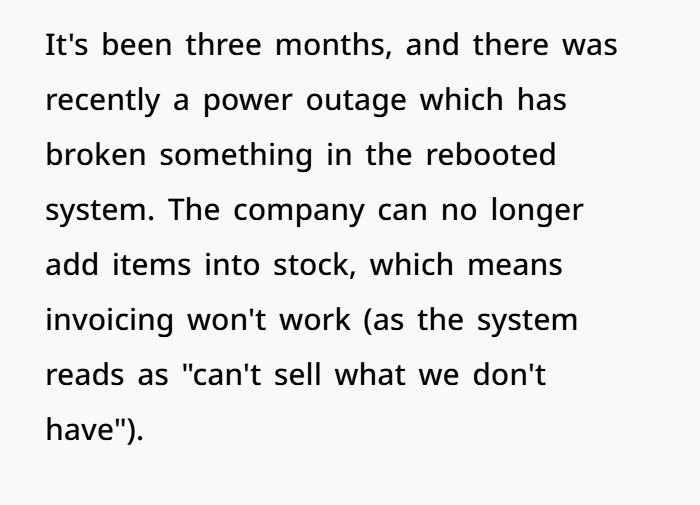
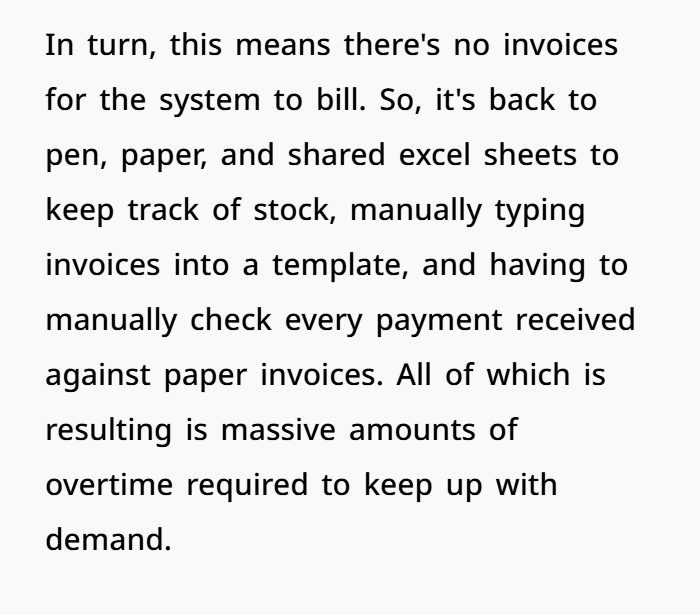
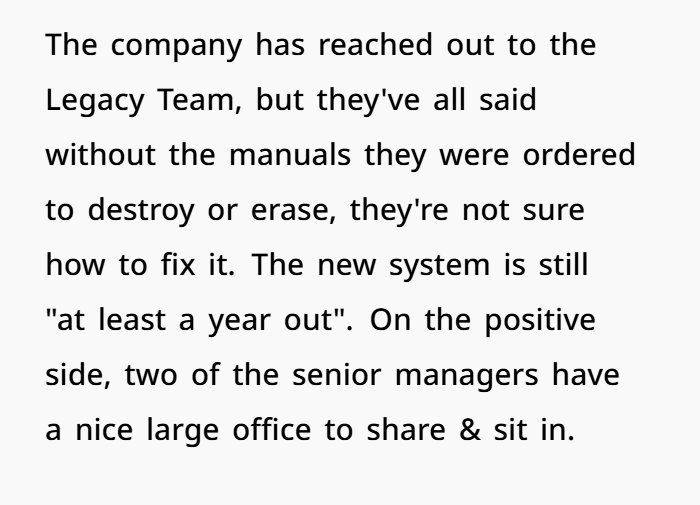
In the Reddit post titled “Delete the Legacy Knowledge department? Okay,” a former employee recounts a company’s decision to eliminate its Legacy IT team, responsible for maintaining a critical in-house software system. This team managed the foundational aspects of a custom-built platform integral to various business operations, including invoicing, stock tracking, and billing. Management, aiming to cut costs and transition to a new system within a year, instructed the Legacy team to destroy all physical and digital documentation and wipe their computers. Three months later, a power outage disrupted the system, halting stock additions and invoicing processes. With the Legacy team gone and no documentation available, the company resorted to manual operations, leading to significant inefficiencies and overtime.

The Critical Role of Legacy Systems and Documentation
Legacy systems, though often viewed as outdated, are frequently the backbone of essential business operations. Their complexity and the specialized knowledge required for maintenance make them indispensable until a new system is fully operational. Eliminating the team that understands these systems without ensuring a comprehensive knowledge transfer can lead to operational paralysis. As highlighted by Talend, legacy systems often house data in silos and lack integration capabilities, making their management challenging but crucial until a new system is in place.
Documentation serves as the institutional memory of IT systems. It provides insights into system architecture, troubleshooting procedures, and operational workflows. Destroying such documentation eradicates the knowledge base necessary for system maintenance and problem resolution. Astadia emphasizes that maintaining documentation for legacy systems is vital for ongoing operations and onboarding new personnel.
Consequences of Eliminating Legacy Knowledge
The company’s decision to dismantle its Legacy team and erase all associated documentation led to immediate operational disruptions. The inability to process stock and invoices forced a regression to manual methods, increasing the risk of errors and inefficiencies. This scenario underscores the importance of a well-planned transition strategy when phasing out legacy systems.

Moreover, the loss of institutional knowledge hampers the organization’s ability to respond to system failures. Without documentation or experienced personnel, diagnosing and resolving issues becomes significantly more challenging, leading to prolonged downtimes and potential financial losses. As noted by Documaster, the risks associated with legacy systems are exacerbated when documentation is lost or mishandled.
Best Practices for Managing Legacy Systems
To avoid similar pitfalls, organizations should consider the following best practices:
- Comprehensive Documentation: Maintain detailed records of system architecture, processes, and troubleshooting guides.
- Knowledge Transfer: Before phasing out legacy teams, ensure that their knowledge is transferred to current staff or documented thoroughly.
- Gradual Transition: Implement new systems in phases, allowing for testing and adjustments while keeping the legacy system operational as a backup.
- Data Preservation: Archive all digital and physical documentation securely before decommissioning systems.
- Risk Assessment: Evaluate the potential impact of removing legacy systems and plan contingencies accordingly.
Some folks wanted more details





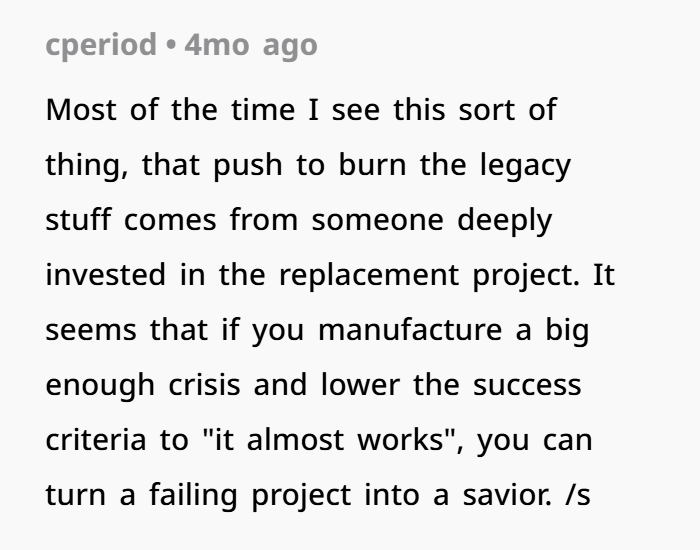
The Reddit user’s account serves as a cautionary tale about the dangers of undervaluing legacy systems and the knowledge required to maintain them. Organizations must recognize the critical role these systems play and approach their transition with careful planning, thorough documentation, and respect for the institutional knowledge that supports them. Neglecting these aspects can lead to significant operational disruptions and financial repercussions.

